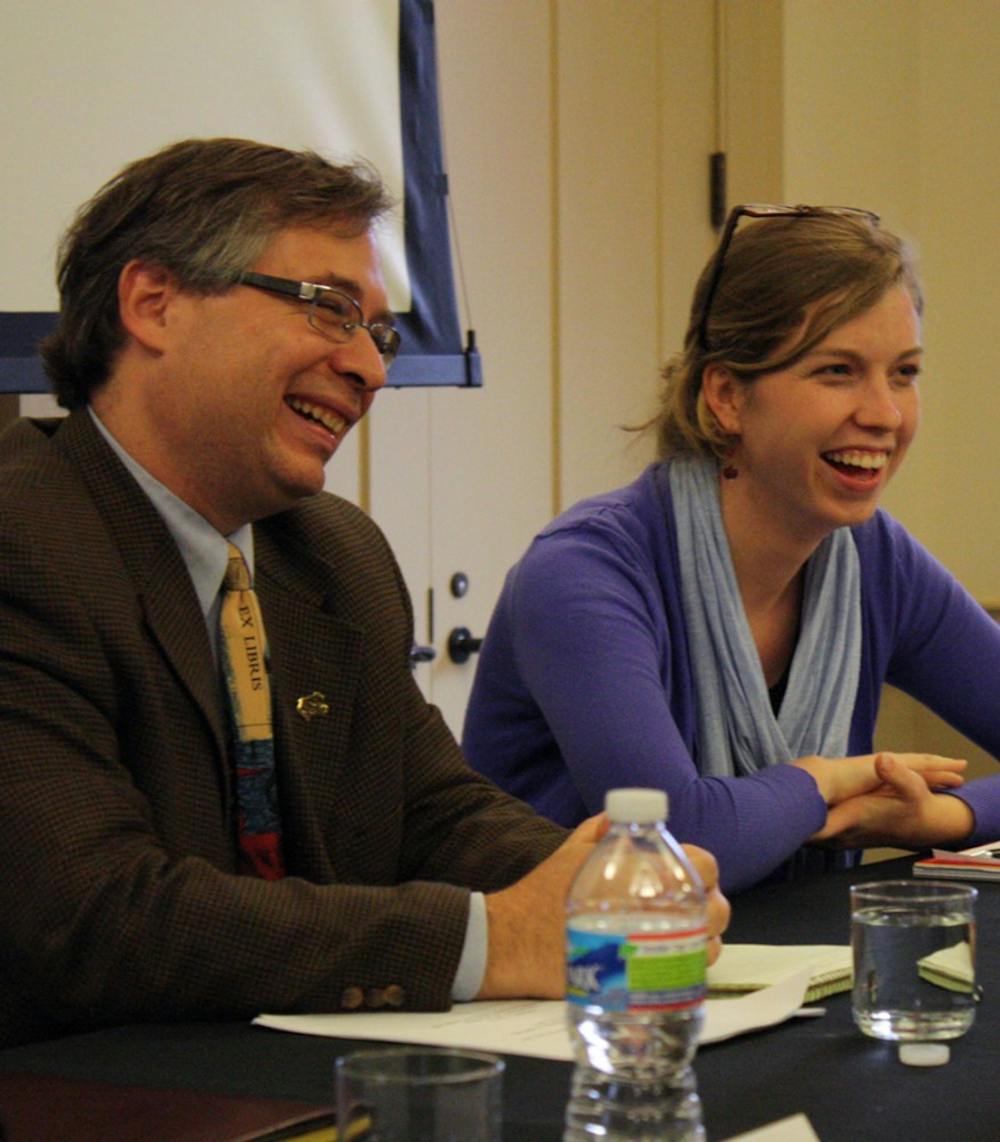Working as chief of staff for U.S. Rep. Alex McMillan, R-N.C., Frank Hill remembered a constituent’s phone call in which he heard curse words he had never heard before.
It wasn’t a product of today’s partisan discourse. That, he said, was more than 15 years ago.
“I don’t know the period where we were so good to each other,” he said Tuesday in a panel discussion on the state of civil discourse in the United States.
Hill joined Ferrel Guillory, a journalism professor, and Andrew Perrin, a sociology professor, in part one of a three-part panel series entitled “Civil Discourse in American Society.”
The discussion, led by Elizabeth McCain, co-president of the Campus Y, sought to explore the current political climate, past trends in bipartisanship and to recommend ways to improve the state of civil discourse. About 15 people attended.
The discussion of current problems pointed to the media as a culprit, where political discourse is rampant in what Guillory called “yell television.”
Hill told the audience to turn off the hate-spreading television that is filled with out-of-context sound bites and instead read a book on historical political science.
Guillory said a renewal of professional journalism needs to occur, one that focuses on a renewal of strong, independent opinions.
The United States has had a long tradition of a boisterous democracy of incivility, he added, including the Civil War and presidential assassinations.




